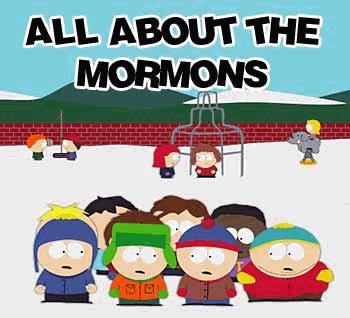Topsy-Turvy (Criterion Collection, out Mar. 29). Mike Leigh’s 1999 film about Gilbert, Sullivan, and the making of The Mikado, newly remastered and reissued by the Criterion Collection with all the usual goodies, is the best backstage movie ever made, as well as a surpassingly fine exercise in cinematic time travel. To watch it is to feel closer to the tone and texture of Victorian life than you ever thought possible. Intelligent, provocative, hugely entertaining…what’s not to like? (TT).
Archives for March 25, 2011
BOOK
Simon Nowell-Smith, The Legend of the Master: Henry James as Others Saw Him. The subtitle says it, but conveys nothing of the elegance and resourcefulness with which Nowell-Smith put together this 1947 anthology of first-hand anecdotes and impressions–all of them carefully verified. To see James through the widely varied eyes of Arnold Bennett, E.F. Benson, G.K. Chesterton, Desmond MacCarthy, H.G. Wells, Edith Wharton, and dozens of other contemporaries is to see him with the utmost immediacy, and the results are far more readable, even for pure pleasure, than any volume of this kind has any right to be (TT).
TT: Everybody but Mohammed
I review The Book of Mormon and Ghetto Klown in today’s Wall Street Journal. Neither show passed muster with me. Here’s an excerpt.
* * *
 Trey Parker and Matt Stone, the naughty boys of “South Park,” have teamed up with Robert Lopez, one of the co-creators of “Avenue Q,” and the results of their collaboration are pretty much what you’d expect: slick and smutty. “The Book of Mormon” is the first musical to open on Broadway since “La Cage aux Folles” that has the smell of a send-in-the-tourists hit. Casey Nicholaw (“The Drowsy Chaperone”) has staged the musical numbers with cheery energy and the cast, especially Nikki M. James, is terrific. But don’t let anybody try to tell you that “The Book of Mormon” is suitable for anyone other than 12-year-old boys who have yet to graduate from fart jokes to “Glee.” A couple of reasonably effective production numbers notwithstanding, it’s flabby, amateurish and very, very safe.
Trey Parker and Matt Stone, the naughty boys of “South Park,” have teamed up with Robert Lopez, one of the co-creators of “Avenue Q,” and the results of their collaboration are pretty much what you’d expect: slick and smutty. “The Book of Mormon” is the first musical to open on Broadway since “La Cage aux Folles” that has the smell of a send-in-the-tourists hit. Casey Nicholaw (“The Drowsy Chaperone”) has staged the musical numbers with cheery energy and the cast, especially Nikki M. James, is terrific. But don’t let anybody try to tell you that “The Book of Mormon” is suitable for anyone other than 12-year-old boys who have yet to graduate from fart jokes to “Glee.” A couple of reasonably effective production numbers notwithstanding, it’s flabby, amateurish and very, very safe.
The plot is exiguous. Two shiny-faced young Mormons (Josh Gad and Andrew Rannells) are sent to Uganda to evangelize the natives, promptly discover that life in Africa is more complicated than they thought, and prevail by being geeky and lucky. This is, in other words, a one-joke show, the joke being that Mormons are unworldly nerds who think that “bullpoop” is a deletable expletive. Most of the other jokes in the show are derivative of this one and are just as obvious, including the Obligatory Song About a Closeted Gay Mormon: “Being gay is bad, but lying is worse/So just realize you’ve got a curable curse!” This being a “South Park” spinoff, we also get several other songs which operate on the mistaken assumption that four-letter words are automatically funny when sung, plus an assortment of AIDS-in-Africa “jokes” that are to black comedy what pies in the face are to screwball comedy.
The creators of “South Park” like to call themselves “equal-opportunity offenders,” but if you think there’s anything risky about “The Book of Mormon,” you’re kidding yourself. Making fun of Mormons in front of a Broadway crowd is like shooting trout in a demitasse cup….
John Leguizamo has turned to straight autobiography in “Ghetto Klown,” his fifth one-man show. No, his parents didn’t understand him. Yes, he became an actor and started getting work in Hollywood, albeit in stereotypical wisecracking-Latino-with-an-Uzi roles. Yes, he started writing one-man stage shows in order to understand himself. Yes, his screen career went into the tank, in part because of his undisciplined behavior and general mouthiness. No, his first marriage didn’t work out. Yes, his second marriage did, which gave him the courage to write “Ghetto Klown” and return to the stage after an eight-year hiatus…but enough already! Mr. Leguizamo is an energetic and resourceful performer and “Ghetto Klown” has its moments. The problem is that you’ve heard them all before…
* * *
Read the whole thing here.
TT: Almanac
“Nature goes her own way, and all that to us seems an exception is really according to order.”
Goethe, Conversations with Eckermann
